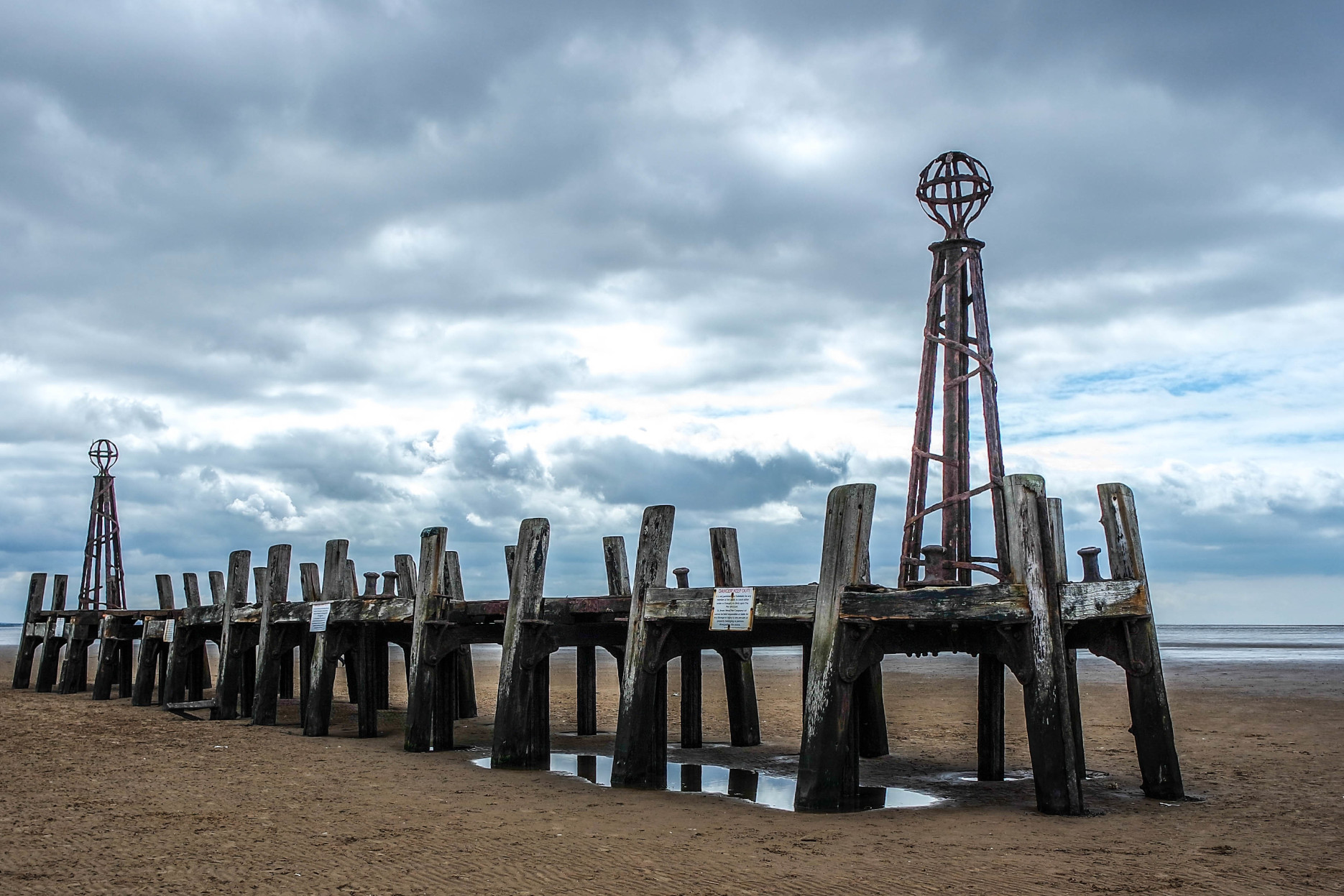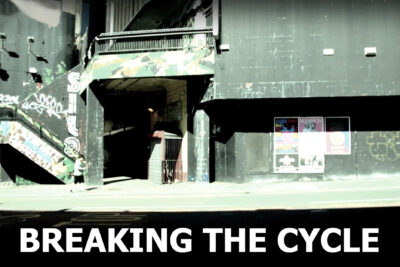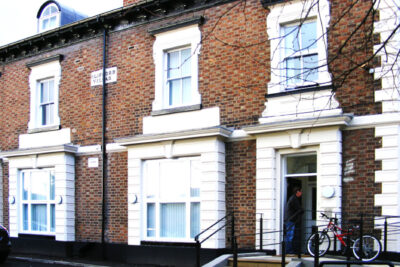It’s important I give you the background to my brother the kind very gentlemanly man who has a big heart.
My brother had his 50th birthday in 2021 just as we were coming through the Covid pandemic so celebrations were virtual over Zoom. He was so happy, newly married to his childhood sweetheart he met after more than 30 years and back at the job he loved as a construction site manager and also sober!
Let me take you back to his early years…..at the age of two he was adopted by my lovely parents after living in a children’s home. He was left by his mother in the care of his grandmother who sadly neglected him and at 18 months old he was very underweight and malnourished. He was ‘rescued’ by an amazing social worker who remained in touch with my parents for many years.
Such a gorgeous baby with big brown eyes, mop of curly blonde hair and little rosebud mouth. No wonder we all fell in love with him. He became part of a happy family with 5 siblings and a dog. My parents didn’t have much, but they gave a lot of love. I was 12 when Andrew came to our family and we all quickly took him to our hearts. He always knew he was adopted, and my mother explained to him that we were so lucky that he chose us. My brother had a few insecurities at that age as he didn’t like to be left alone and ate as if he would never see food again. It was my job aged 12 to stay with him until he fell asleep at night and as he got older our dad played cassette tapes of him reading fairy stories to try and settle him to sleep alone. To this day that fear still persists and he hates being alone which adds to his emotional ability to cope with life.
Andrew has lifelong friends from his early school days who through his life have supported him as best they can
He was an artistic child who loved drawing and was very bright but like a lot of children didn’t fully apply himself He developed Tourette syndrome as a child which made life difficult and the tics continue to this day. The tics are exacerbated when he is under stress and feeling anxious.
He was and still is very well liked by family, peers, colleagues and friends. Andrew has lifelong friends from his early school days who through his life have supported him as best they can.
Sadly, he was and remains easily led and likes to be liked trying hard to please people which has been to his detriment.
From leaving school he became part of the drug culture and then into alcohol. This has stayed to varying degrees since then and the past few years more than ever. He has always been a hard worker instilled by our fathers example of working hard for a living, paying your way and you have to be close to death to go off sick in a job!!!!
He functioned really well despite alcohol over the years constantly working and undertaking many courses to support his roles in the construction industry until the point he realised his quality of life was severely impaired by his drinking and it became intolerable to him. Rehabilitation was successful for a period of 2.5 years, he regained his self-esteem and respect for himself married his childhood sweetheart, met his birth mother and family, returned to work as a site manager for a construction company and met a son he was unaware of. The future looked bright but sadly his happiness overwhelmed him and his anxiety levels rose and he returned to drink.
April 2021 no marriage, no job, no money, no home and the ideological notion of his birth mother cultivated since childhood collapsed and his world came tumbling down.
The death of our mother at 62 when Andrew was 24 was a difficult time for him. He had tried to find his birth mother with the help of our mum but no success. His longing continued for many years and came to fruition in 2020 when his stepsister contacted him. Sadly, his birth mother did not live up to his high expectations as he compared her to his adoptive mother and he realised how fortunate he was to have had her. His relapse then meant he lost his stressful job and cut contact with his birth mother and the marriage broke down.
I think I am speaking for all of the family in saying we never understood addictions and as we saw the effect on our parents with the constant worry through the years we became exasperated and angry. We didn’t understand nor did we try to. Our good friend Google wasn’t around in the early years to source information or help.
Because of his drinking a few of his siblings turned against him and they lost contact over the years. That was hard as he felt a sense of rejection all over again but despite resentment he dealt with it and moved on with his life.
My turning point was reading a book recommended by a friend about six years ago called Why Love Matters how affection shapes a babies brain by Sue Gerhardt. It explains beautifully how early loving interactions affect our emotional development and the lasting consequences which can create a vulnerability to depression, addictions and anti-social behaviour in later life.
Then in April 2021 he turned to me for help. His drinking was excessive, his heart broken when he realised what he had lost and his mental health was at its lowest. 2022 we were informed he has Wernecke Korsakoff Syndrome. He doesn’t remember anyone in 2021 breaking this bad news and his life became chaotic, he was homeless, sofa surfing and with multiple admissions to hospital due to blackouts causing collapse. His anxiety and depression were overwhelming, and his antidepressant medication regime was haphazard.
He idolised his wife and would often mention how he would say to her ‘I love us’. Although she tried to help in many ways it became intolerable when he drank. She mentioned how she would drop him off at an AA meeting and then receive a call by the police to say they had found him on the street collapsed drunk. Having supported Andrew for the past 18 months I can empathise with people living with an alcoholic. Its emotionally and physically tiring constantly worrying what will happen next especially living under the same roof. I have been lucky as I don’t live with with as unable to offer him a home I can walk away from the turmoil and chaos although its been tough on a daily basis.
Having supported Andrew for the past 18 months I can empathise with people living with an alcoholic. Its emotionally and physically tiring constantly worrying what will happen next especially living under the same roof.
Andrew had a close relationship with his nephew, step daughter & cousins but as supportive as they could be, like me over time they became exhausted with the constant chaos, the telephone calls, borrowing money when his Universal Credit was drunk. We all felt helpless and hopeless with our inability to make a difference to him.
Some people when drunk are happy and jolly but not so Andrew as anger rears its head and he becomes aggressive and difficult to rationalise with. When drunk he would often talk of suicide although it came to the point we all dismissed it just concerned one day he would really mean it. They were all cries for help.
The last 18 months have been horrendous, contacting mental health services asking for help and being rejected. The times I asked for a mental health assessment and was told because of his alcoholism he couldn’t be assessed until he was sober was difficult. It was obvious to me his drinking was exacerbated because of his poor mental health. His GP was at a loss as he was known to services and expected him to engage.
I would try to explain it was his mental health not his drinking and he was in a spiral of decline. Not eating, losing weight, bizarre behaviour on what I perceived as a good day. Threatening suicide, multiple admissions our local hospitals only to be discharged with no follow up. On occasions he would go to A & E but his anxieties would not allow him to wait. One visit he was informed it was a 15 hour wait. It was a daily soap opera with constant trauma for him, family & friends!
He was homeless and sofa surfing at friends and spent the odd nights on the street.
Drinking put him in a extremely vulnerable position. Some ‘friends‘ were only drinking buddies who fleeced him for his wedding ring, money and he was viciously attacked on more than one occasion. His reputation as a lovely bloke was in tatters as he became constantly drunk and aggressive. Friends and relatives turned away as he metamorphised into a nuisance nobody wanted to tolerate.
People see homelessness as a stigma, its their own fault, there’s plenty of help they don’t need to be homeless, they are druggies or alcoholics it’s their own fault. And this isn’t just the public its professionals too.
Take the homeless team within housing, whilst one clearly had insight to the needs of people who were homeless and showed compassion another asked why family couldn’t take him and they couldn’t do anything. If family could have taken him long term we would, even short term had its challenges so please don’t judge others without knowing the facts and circumstances.
A more understanding housing team member agreed to fund overnight temporary accommodation in a homeless hostel in Southport until something more permanent was found.
On arrival Andrew was put in a room called a pod which was clean and had an ensuite. The room was one of four on a corridor away from the main rooms above but off the main foyer and office. The corridor was locked by staff overnight. Having worked in the construction industry health & safety is instilled into workers. Andrew felt this was intolerable and a fire risk should there be a fire given the size of the accommodation and how may rooms there were. Off onto the streets again he went that night ending up on his nephew’s couch rather than put himself at perceived risk. He was to be placed there at a later date which provided him with his own room within the hostel and support staff. Unfortunately, Andrew found this placement difficult as residents have to vacate the room from 9.30am to evening time. He had access to cooking facilities in the evening and food is available which is donated by various supermarket. At this stage Andrew had anorexia so lost appetite and felt unable to cook for himself. Ready meals were not the solution as he lacked the motivation to cook. Irrespective of the weather residents are kept out of the hostel and if they lacked money couldn’t access a warm café. I asked if staff could hold his money and provide a daily allowance of which they agreed. That evening they decided this was not in their policy and handed over the £100 had left to him. A call that evening informing me they had released the money to him caused panic knowing he was now in for a good night’s drinking. I was so concerned staff were unaware of their own policy. Andrew was clearly delighted to have a £100 cash he was out of the hostel like Flash Gordon. Good night in the pub, bottle of vodka and police escort home! Minus £100 so I assume he treated those in the pub to a drink too!
The Southport homeless hostel is there to provide accommodation and also access to services such as benefits. The hostel also provided a visiting psychology service which Andrew accessed at my request and it was this that became the turning point in his care.
The saving grace here was he was scooped up by the psychology service and transferred to a more appropriate placement. The placement at Bosco House Bootle was nurturing, supportive and staff willing to adapt to accommodate his needs to support rehabilitation.
I witnessed collaborative working at its very best resulting in a case conference and a care plan for him. Psychology, Bosco House keyworker, alcohol worker and then referred to a social worker he was fast tracked because of their intervention to detox and then rehab. Support was received for the first time to me as his carer with the simple words “we are here for you too to lighten your load”.
What a powerful simple sentence said with compassion that made a huge difference to me. I was at the point of giving up and practicing tough love as I felt I couldn’t do anymore and I felt I was nurturing his addiction. Here was my turning point so thank you Alison.
The Consultant Clinical Psychologist provided us with a diagnosis of Wernecke Korsakoff syndrome which came as a complete shock to Andrew and I but it actually helped us to understand his erratic behaviour and what his needs were. The Neuro Triage website was accessible to learn more.
Given his diagnosis and poor cognitive function with the potential for permanent brain damage he was fast tracked to the Hope Centre Liverpool for detox then transferred to Shardale Rehab in Lytham St Annes and post rehab to supported living in Chorley.
His rehab went really well to the point the team there wanted Andrew to become a volunteer. He was clearly well respected by staff and residents alike. He flourished, put on weight, was able to laugh again and enjoy life. This placement allowed him to become who he has always been again. Andrew was funded for three months by Sefton social services however the rehab team felt he needed longer. Although there was resistance to an extension in funding initially, I put a case forward for further funding reflecting the governments drive for personalised care. Other areas commissioning Shardale allowed a placement up to six months depending on need. Sefton’s commissioning policy had recently changed to three months. We were both appreciative of a placement extension to four months funding and Shardale provided a further two weeks free of charge. Shardale clearly had a commitment to him.
Sadly Andrew went onto quickly relapse as soon as he was in supported living due to an incident on the first night and has continued to drink intermittently since, back to being homeless, erratic behaviour and feeling helpless.
In my opinion I don’t think anyone could have done more for him since the psychology service ‘rescued‘ him. I am angry we didn’t know about his diagnosis prior to his psychology assessment given the amount of professionals he saw when in hospital and A & E and what difference that may have made.
On reflection…………………
I wonder if a six month rehab placement would have made the difference given his wet brain and difficulty with his memory and understanding which may have stalled his progress initially.
I wonder if supported living needs to be more supportive! In rehab Andrew wasn’t allowed out of the house for the first 4 weeks, then with a buddy to then progressing onto lone visits to shops or buddy to others. Saturday visiting from family & friends was very well controlled with visitors signing him out and in with restricted visiting. Any rules broken in the house meant a loss of Saturday visiting rights. He was breathalysed on return to the house and bags searched for alcohol.
Andrew loved the programme, felt he was benefitting and loved the learning contained within the programme. He fitted in well as amiable and sociable. The fact Shardale felt he had the potential to volunteer did wonders for his self esteem and he was keen to do so.
Transferring from a very supported way of living for 4.5 months in rehab to a house whereby residents are expected to support each other was this one of the weakest link for Andrew?? The supported housing service provided housing support but not actually a link worker to help with budgeting, finances, mental health support etc.
Should there have been an all systems review, what went well, not so well and what can be learned about Andrew’s diagnosis and his placements. I would like this to include Andrew, myself & all services involved. I would hope this may provide insight to the commissioning and provider services and a more personalised way forward for those in a similar position.
Tough love is a strange concept that benefits the carer I think more than the person. Various people said it many times to me such as walk away, leave him to it he will soon see reason and whilst I threatened withdrawal of support but never implemented I have tried various methods to support and try to influence him to stop drinking. Practical support included managing his money ensuring his benefits lasted until the end of the month and he had food & cigarettes, pre rehab managing his alcohol to reduce his units under supervision of his alcohol worker. This resulted in his nephew and I visiting Bosco House three times a day to drop off his regimes of cans of Skol Super!
Not having control over his own money made him feel a sense of release of his personal power despite the fact he would spend his benefits within 2 days and not think ahead on how he was to live for the rest of the month. Support was ensuring his clothing followed from detox, rehab supported housing and anywhere else he has landed. Liaising with housing, his care teams and health care workers. Emotional support consisted of a listening ear providing encouragement and advice. Daily calls from him whenever things were going well and then lately clearly not so well and back in crisis again.
Walking away I felt would be punishing the person who is struggling mentally. Would my tough love change his behaviour I don’t think so if Shardale can’t after 4.5 months then how can I alone. I wonder if it would make things worse as he feels rejected and unworthy because of his addictions already. My position now is not to intervene and try to solve all of his problems. Boundaries are set around money and meeting together if he is intoxicated. He knows I love him and will always be his sister but my supportive approach is changing.
People who are homeless and suffer with addictions deserve to be treated holistically with compassion, empathy and understanding. Each person has a story to tell just take the time to listen and don’t see the drunk who can’t express themselves when under the influence.
What services need to consider: –
- There needs to be a pathway in place across all services and organisations within the region which is a collaboration with all of the relevant organisations.
- It is essential service users are involved from conception including family and third sector groups like AA.
- All health & social care staff to be trained on the psychology of addictions to minimise bias as part of mental health training if it currently isn’t included. ‘Unconditional Positive Regard’
- Point for discussion: Is the rehab programme he attended too protective and is it a false environment that leads onto supported living. Is supported living supportive enough? Clients have moved from an extremely supported environment being breathalysed etc and then an open-door policy. They then live in a house with others and expected to support each other without psychology or mental health supervision.
- What should personalised care look like for a person who is homeless with addictions? What are the reasons for being homeless and how are they being supported or managed. Realising some people may be difficult to manage because of their poor physical & mental health.
- Advise all professionals to attend an AA/Fellowship meeting. I attended a meeting with Andrew and the effect was profound. It gave me hope that sobriety could be achieved again but also an understanding of how much effort it takes for a person to stay sober. One gentleman there had been sober for 28 years but still felt he was one drink away from relapsing. He was committed to attending the meetings for that reason alone.
- Andrew was provided with 3 months rehab funding although out of the Sefton area clients are given up to six months. Funding should depend on the needs of the person. Having Korsakoff may have meant the first few weeks/months of Andrews placement were negated whilst his wet brain recovered somewhat. A request for further funding resulted in one months extension. Shardale rehab clearly saw Andrews potential and need for further input and graciously provided two weeks free of charge. If Andrew had 6 months of the rehab programme instead of 4.5 months would that have made a difference to his relapse prevention.
- Housing service is crucial as this service may be the first point of contact to involve all services and trigger the pathway
- There needs to be a support element in the pathway for families. The impact on family & friends is enormous when someone is homeless and suffering with addictions. Constantly worrying where the person is, how are they eating, are they taking their medication, are they safe. What support is offered currently and does it meet needs.
- Staff need to understand more about Tough Love and when it would be beneficial for family to instigate but is it appropriate if it is unlikely to benefit the person.



